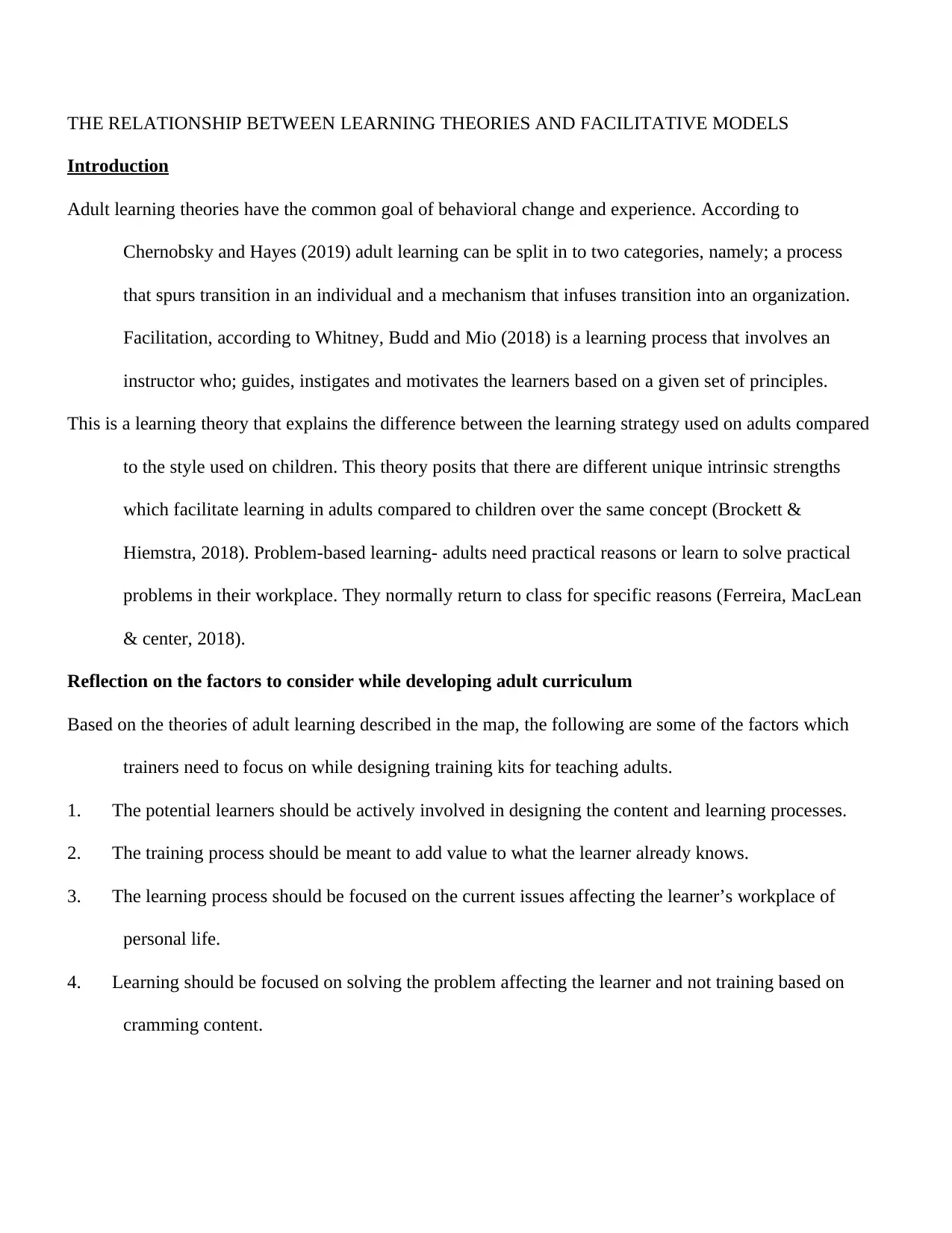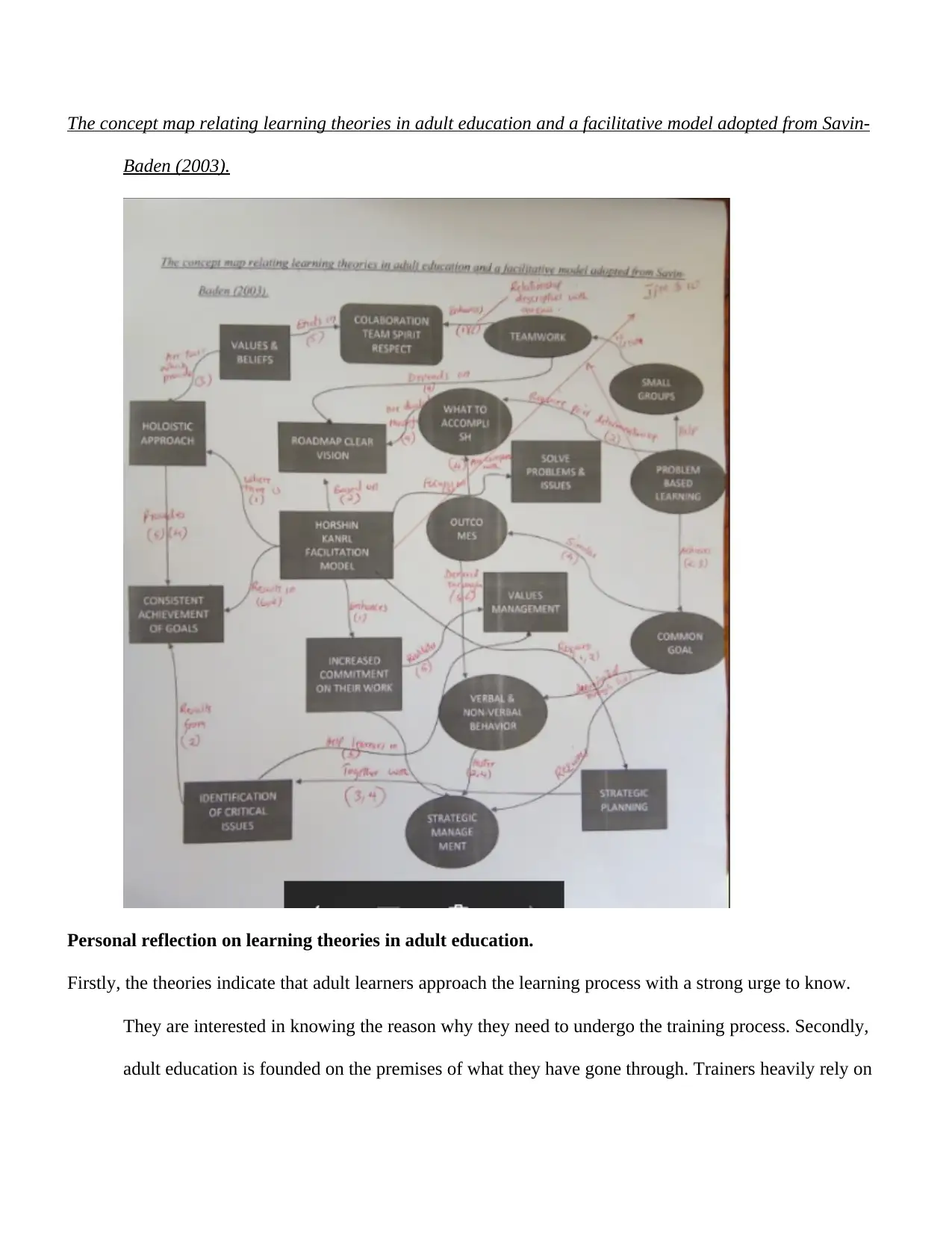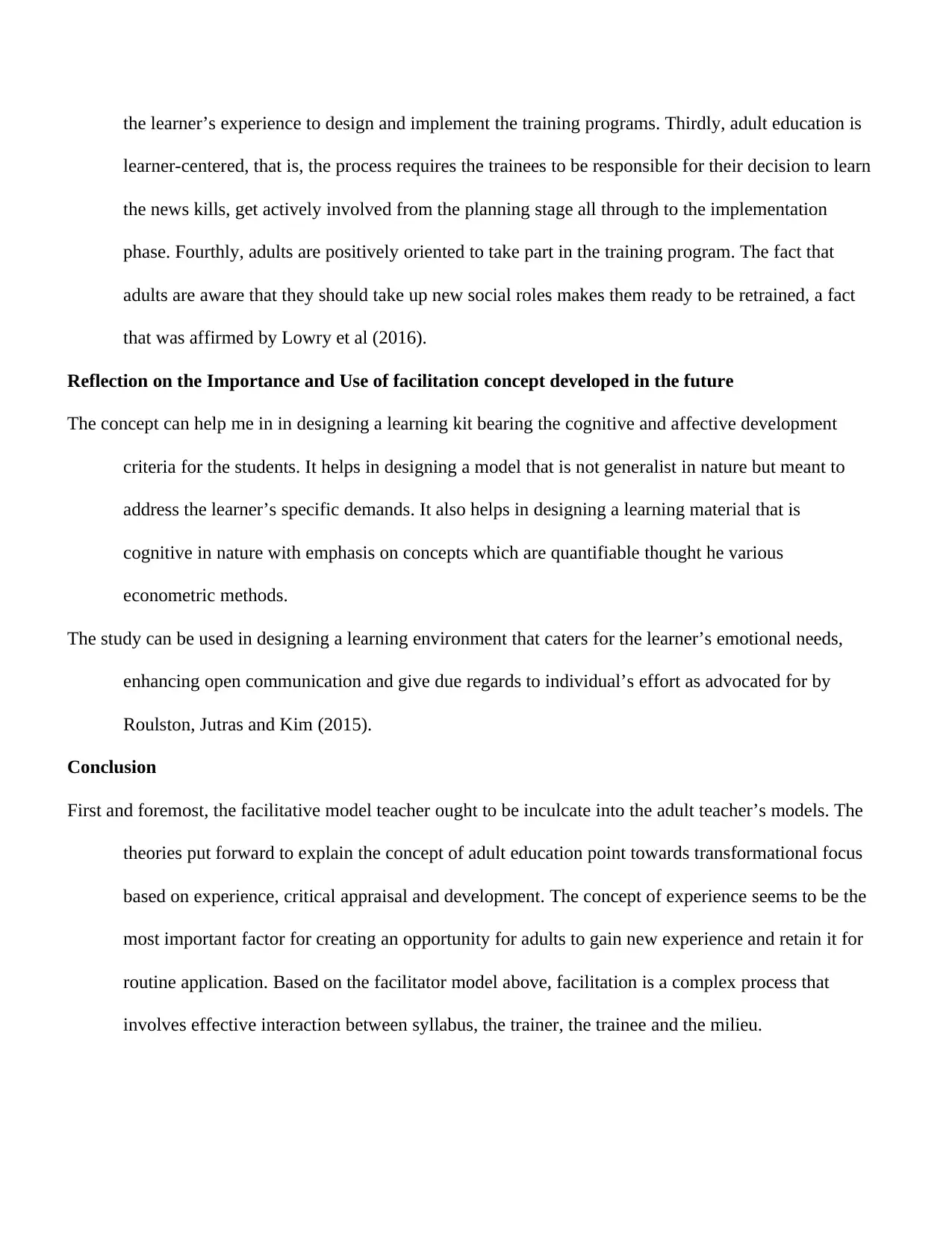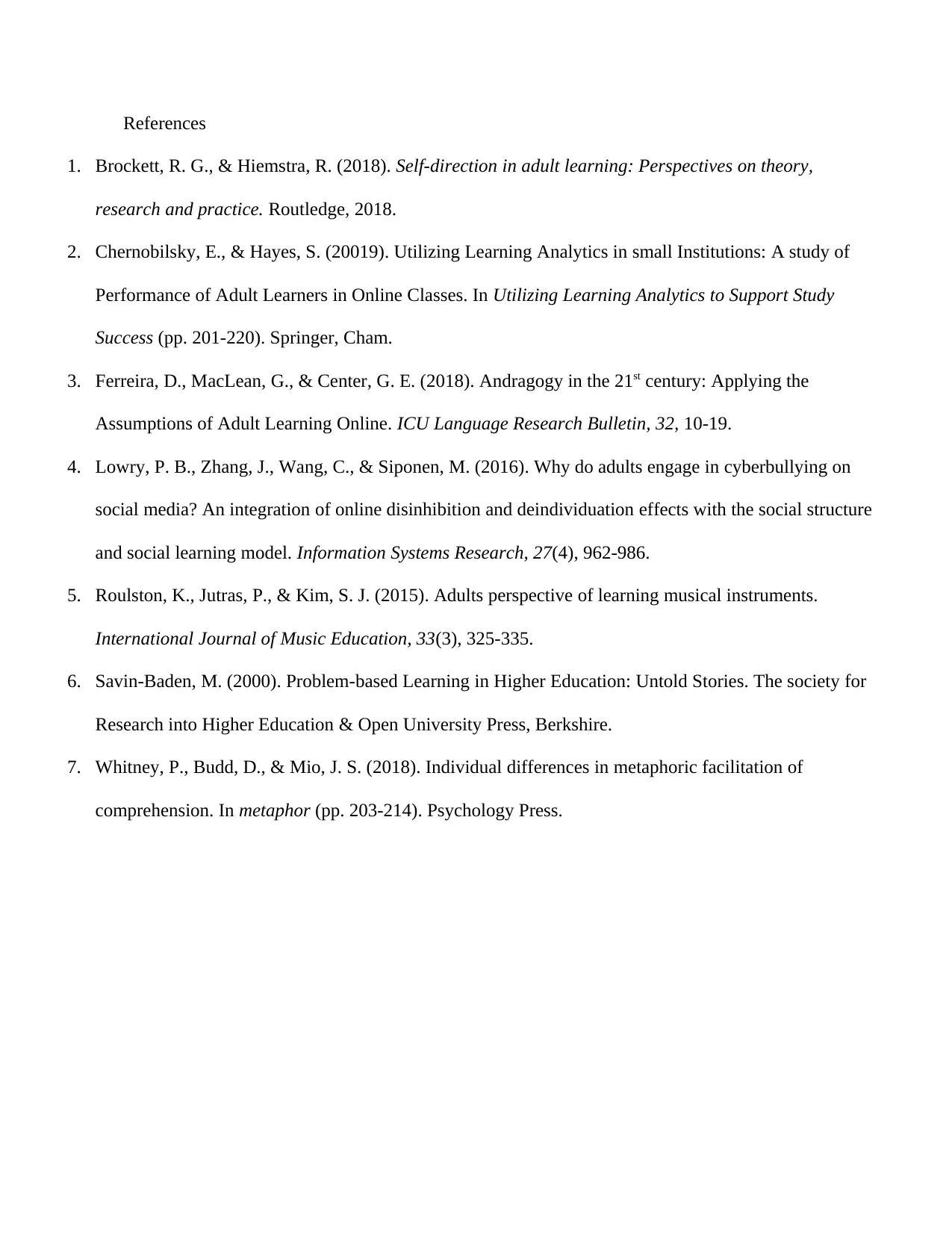Adult Education: Exploring Learning Theories and Facilitative Models
VerifiedAdded on 2022/11/23
|4
|996
|231
Report
AI Summary
This report delves into the relationship between adult learning theories and facilitative models, focusing on the core principles of andragogy. It examines how adult learners' experiences, practical needs, and problem-solving approaches influence curriculum design. The report highlights the importance of learner involvement, the value of experience-based learning, and the significance of addressing real-world problems. It includes a concept map illustrating the connection between learning theories and facilitative models, along with personal reflections on the application of these theories in educational settings. The report also discusses the future use of facilitation concepts in designing learning kits that cater to cognitive and affective development, emphasizing the need for personalized and quantifiable learning experiences. The conclusion underscores the transformative focus of adult education, emphasizing the role of experience in facilitating new knowledge and its practical application.
1 out of 4










![[object Object]](/_next/static/media/star-bottom.7253800d.svg)